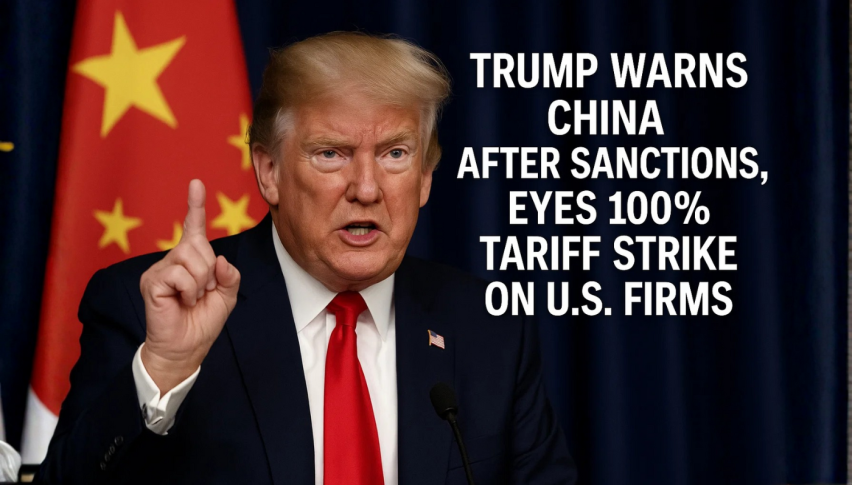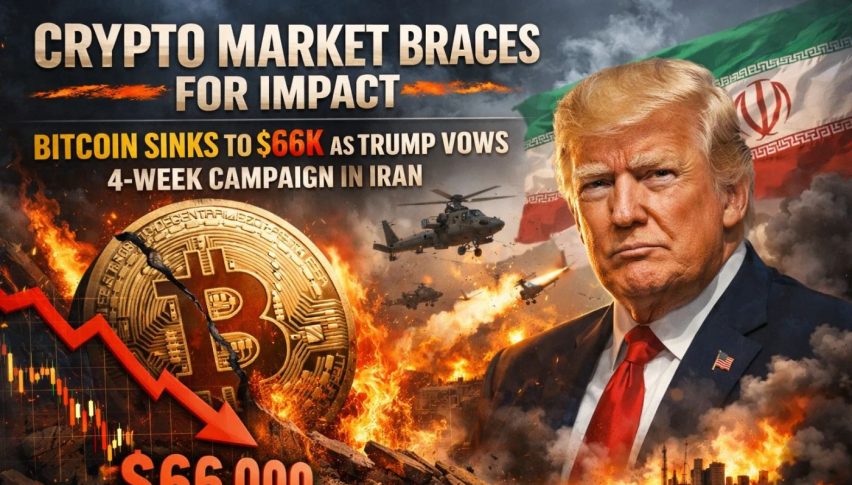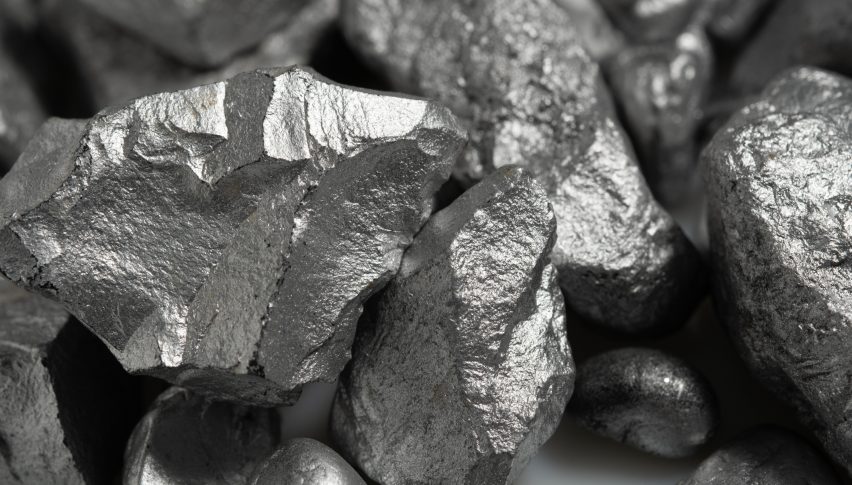Trump Warns China After Sanctions, Eyes 100% Tariff Strike on U.S. Firms
The Trump administration has issued a stark warning to China , warning them against taking retaliatory measures that would target US firms

Quick overview
- The Trump administration has warned China against retaliatory measures targeting US firms, particularly in the shipbuilding sector.
- U.S. Trade Rep Jamieson Greer accused China of economic bullying aimed at deterring foreign investment in key industries.
- China has imposed sanctions on the US divisions of Hanwha Ocean Co, complicating US efforts to rebuild its shipbuilding industry.
- The ongoing maritime standoff highlights a broader struggle for influence in global trade routes and supply chains between the US and China.
The Trump administration has issued a stark warning to China , warning them against taking retaliatory measures that would target US firms – especially those that are crucial to getting the country’s industrial engine back on track. This came after Beijing announced that they were slapping sanctions on the US divisions of Hanwha Ocean Co – a South Korean shipping giant which has sunk a lot of money into US shipbuilding projects.
U.S. Trade Rep Jamieson Greer spoke out in a statement made on October 20, saying China’s actions are part of a pattern of economic bullying, aimed at influencing US policy and disrupting global supply lines. He made it clear that the Chinese sanctions were all about trying to scare off foreign investors from US shipbuilding and other high-value industries that the US sees as vital to its national security – Greer even went so far as to say that Beijing’s actions are a bid to deter investment in these areas all together.
“China’s aggressive posturing won’t keep America from rebuilding its shipbuilding industry, or from protecting key US industrial interests.” Greer bluntly stated
🚨BREAKING:
🇺🇸🇨🇳 President Trump warns that China could face a 155% tariff if a new trade deal isn’t reached by November 1st signaling rising trade tensions ahead. pic.twitter.com/ZuPnwP8Eui
— BlockIntelX 🔗 (@BlockIntelX) October 21, 2025
Key Developments
- China has banned its own companies from doing business with the US branches of Hanwha Ocean Co
- The U.S. could retaliate against China with 100% tariffs on port equipment
- There’s also talk of slapping an extra 150% import duty on cargo-handling machinery
Another flashpoint in the US-China Maritime Standoff
This latest warning is a further escalation of the high-stakes maritime confrontation between Washington and Beijing – China currently holds over half the world’s shipbuilding capacity – while the US, despite having the world’s strongest navy, struggles to keep up with shipbuilding production.
To make up for this gap, the Trump administration has been actively courting South Korean investment – largely because South Korea is the world’s second-largest shipbuilder after China. But now that Beijing’s slapped sanctions on Hanwha Ocean Co this whole effort is starting to look pretty precarious.
Both sides have already started slapping port fees on each other’s commercial shipping – a measure that kicked in last week. And now analysts are warning that these kinds of trade tit-for-tat could really start to disrupt global shipping – which underpins over 80% of international trade.
Greer underlined Washington’s position, saying the US “won’t let fear of confrontation make us back down from efforts to shore up key US industries”
🚨 TRUMP WARNS CHINA OF 155% TARIFF IF NO DEAL BY NOVEMBER 1
President Donald Trump has warned that China could face tariffs as high as 155% starting November 1 if a trade deal isn’t reached. He made the statement during a meeting at the White House with Australian Prime… pic.twitter.com/4aWIF4g1Lz
— The Content Factory (@tcf_updates) October 21, 2025
Taiwan, Trade & The Battle for Global Influence
But this shipbuilding dispute is only the tip of the iceberg, as it’s part of a larger struggle for influence across the world’s maritime trade routes and supply chains. Trump has been trying to limit Chinese control of strategic ports around the world, including those near the Panama Canal; meanwhile Beijing has been tightening export restrictions on rare earths – materials crucial to Western industry.
When Trump meets with Chinese President Xi Jinping at the Asia-Pacific Economic Cooperation summit in South Korea, they’ll be discussing Taiwan’s territorial status – and reporters asked him if Beijing might ask for trade concessions in return, but he just declined to comment.
This brewing maritime and trade confrontation between the U.S. and China reveals just how deep a divide has opened up between the two nations – one that’s now extending from the world’s oceans right into the boardrooms of the global economy.
- Check out our free forex signals
- Follow the top economic events on FX Leaders economic calendar
- Trade better, discover more Forex Trading Strategies
- Open a FREE Trading Account
- Read our latest reviews on: Avatrade, Exness, HFM and XM


